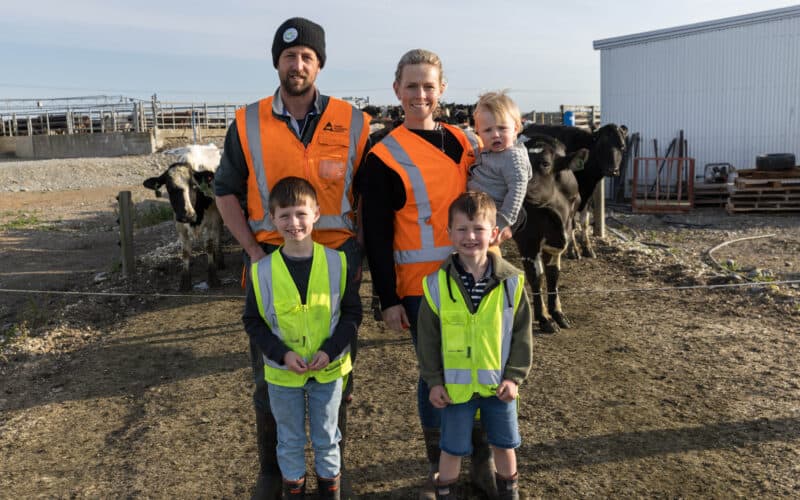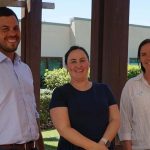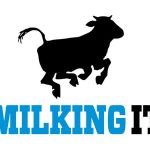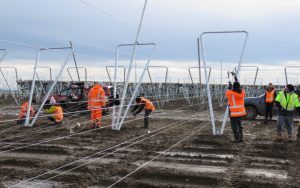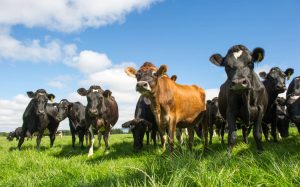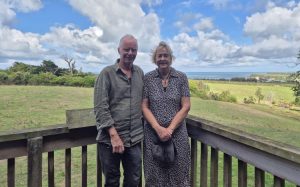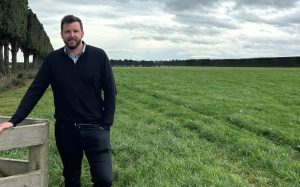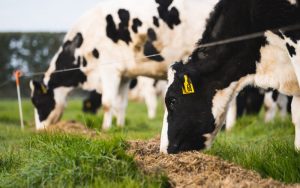
The Dondertmans have had an intensive apprenticeship on their dairying journey, and the biggest lesson they’ve learnt is to be true to their own values.
It’s people, not cows that drive Canterbury contract milkers Josh and Becs Dondertman.
That commitment was recognised when they were named joint winners of a 2023 Primary Industries Good Employer award.
“We do enjoy the people side of farming and we enjoy working with the different nationalities and the way people work together, and it just is a people-focused thing, not a cow-focused thing. It’s people and that’s what makes it work,” says Becs.
The Dondertmans and their three young sons are in their first season on a 1100-cow, 280ha Dairy Holdings farm near Dunsandel, the latest step in a career in which they’ve experienced real highs and lows as dairy farming’s fortunes have fluctuated.
Josh grew up on his parents’ dairy and pig farm in Wairarapa and when he left to go to Massey University he expected to move back home at the end of his studies. But as it turned out, his plans changed when he and Becs decided to go to Tasmania.
Becs was studying for a Bachelor of Resource and Environmental Planning and, having grown up in Feilding where her parents owned a business, she’d never thought of dairy farming as a career option before meeting Josh.
But after graduation, to the shock of Becs’ parents, the young couple took the plunge into dairy farming, taking a job on a newly established equity partnership-funded farm in Tasmania.
“A guy I’d been milking cows for when I was at university, he’d gone over to an equity partnership and offered me a job,” Josh recalls.
“It became clear pretty quickly that the equity partnership wasn’t going to last for various reasons. We thought we’d learnt a lot of stuff out of that – a lot of how not to do it.”
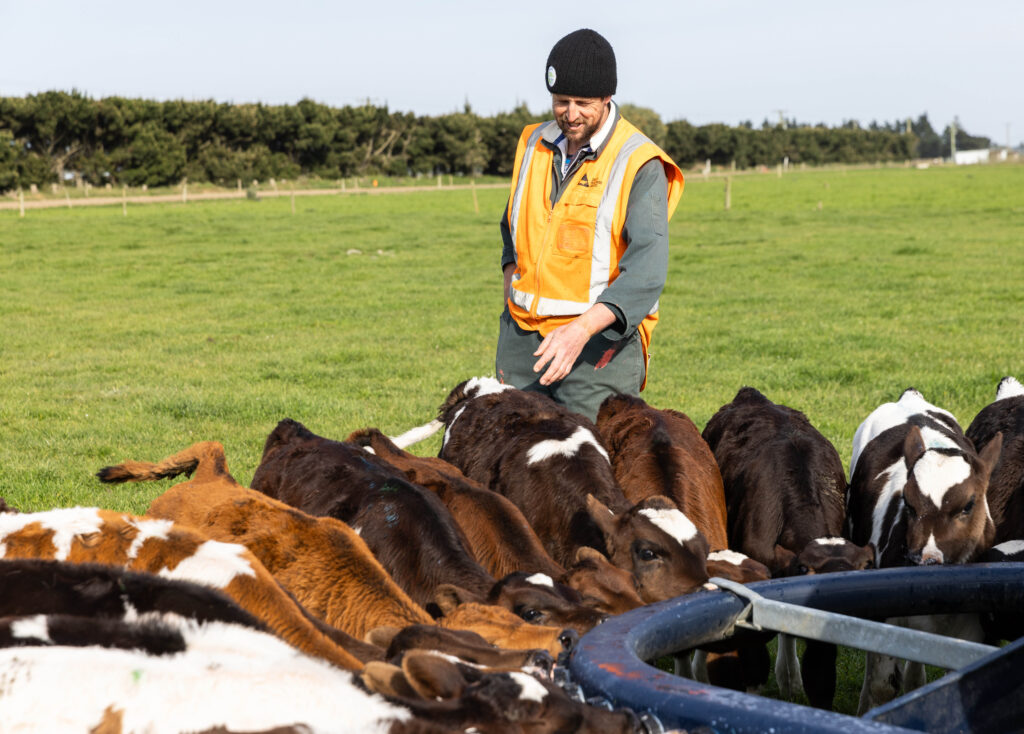
Josh says the business was under-capitalised from the start and the bold projects for pasture growth and milk production never eventuated.
“I remember milking in the autumn, the cows were on once-a-day and the cell count was over a million but we still had to supply milk because the bank was making them do it.”
Josh and Becs loved the job, though, and it certainly didn’t put them off dairy farming.
“We were straight out of uni, 21, 22, it was a cool experience,” Becs says.
They returned to New Zealand ambitious to climb the dairy career ladder and took a shared manager’s job on 1500-cow farm in Manawatū, where they stayed for three seasons, picking up the skills and experience they needed.
“We had great employers there and they gave us a good grounding on basic farming. We got along with them great, they were just really great people and a great community but we had to probably build some other skills to get to where we wanted to go,” says Becs.
Next step was to Hawke’s Bay and a farm manager’s role on a 2500-cow farm owned by Bell Group, where they had full observation of the financials.
“We’d come from a real family-orientated business and we knew we needed some business experience. We went to Hawke’s Bay specifically for that, super large scale and more of a business operation. We were milking for 14 hours a day on that farm so it was a real factory type operation,” Becs says.
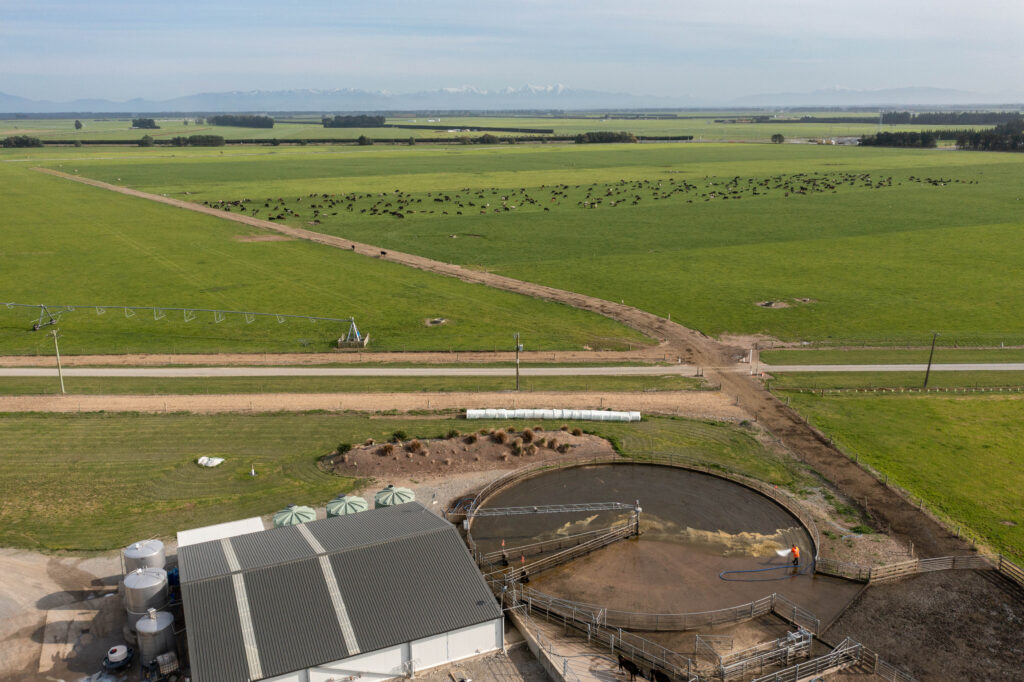
As well as learning more about dairy farming financials, the Dondertmans learnt a lot about managing people, much of it from Lee Astridge, employment consultant and owner of No8 HR.
“The business was really well supported by No8 HR and Lee gave us good idea of what good looked like and where we needed to develop our skills, I think, especially for me having not come from a farming background,” says Becs.
In their second season in the Bay, with winter milking, they calved down 3000 cows, all going through a 60-bale shed, and the couple were working harder than they ever had before.
“There was no balance to what we did, it was just day after day, you were either mating a cow, calving a cow or milking a cow and it was just endless,” says Josh, who adds that was okay with them, as they strove to build equity.
“We were all in at that stage, we were 25 or 26, we didn’t have anything we needed to do outside of work, we had no children then and we just wanted to work hard and we did. It certainly wasn’t sustainable for very long.”
At the same time as gaining experience and growing their skills, the couple had a side business selling cows to South Island farmers as dairy farming down there boomed.
“We did extremely well in stock trading. It was easy to buy stock in the North Island and then on-sell to the south,” Josh says.
The South Island, with its rapid expansion of dairy farming, also seemed to offer more opportunities for young farmers looking to progress towards farm ownership and after two years in Hawke’s Bay, that convinced the Dondertmans to change islands.
“We looked down here I reckon every year for the whole five or six years we were in the North Island, coming down and looking but then we thought, ‘We’re going to bite the bullet and come down’.”
They wanted to stick with large-scale farming so their goal was to invest in an equity partnership. They became a shareholder in Craigmore Investments, which back then was just beginning to move into dairy farming.
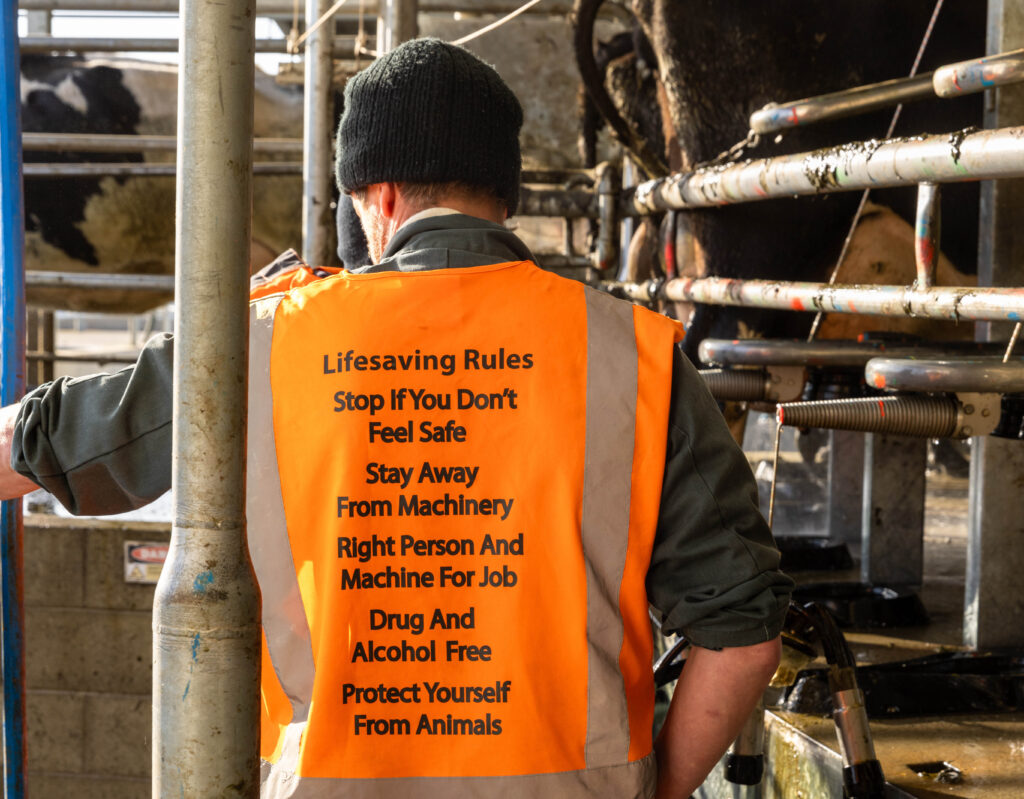
Initially they also managed a 900-cow Craigmore farm but over time, as conversions were completed, that grew to 3000 cows.
“We had a great time in Culverden and we loved our job and loved the people but we were losing money,” Becs says.
“We were a minority shareholder in a much bigger business. We bought at the peak, land prices crashed, dairy payout did the same and we lost our money.”
“We enjoyed the lifestyle the job provided but probably didn’t put the hard work into how we were progressing financially,” Josh says.
“We weren’t going, ‘If we take 20 cents a kg off costs, what does that do to our business?’. It was spend the money because the business needs it; we weren’t analysing what we were up to well enough.”
They stayed in Culverden for six years. “We got to the end and a few things changed within Craigmore that just sort of meant it was time for us to go, which was a hard pill to swallow,” says Becs.
“In hindsight it was the best thing and we’re not shy of telling people how we went into this equity partnership and came out with not a lot.”
“If the payout had stayed up for a couple of years we’d probably have our own farm and be all happy,” says Josh.
They found an 800-cow contract milking job in Rangitata, South Canterbury but shortly after they started there, they suffered another blow in the form of a six-figure tax bill, a result of exiting from the equity partnership.
“We’d lost all that money and we were still paying money back, basically,” Becs says.
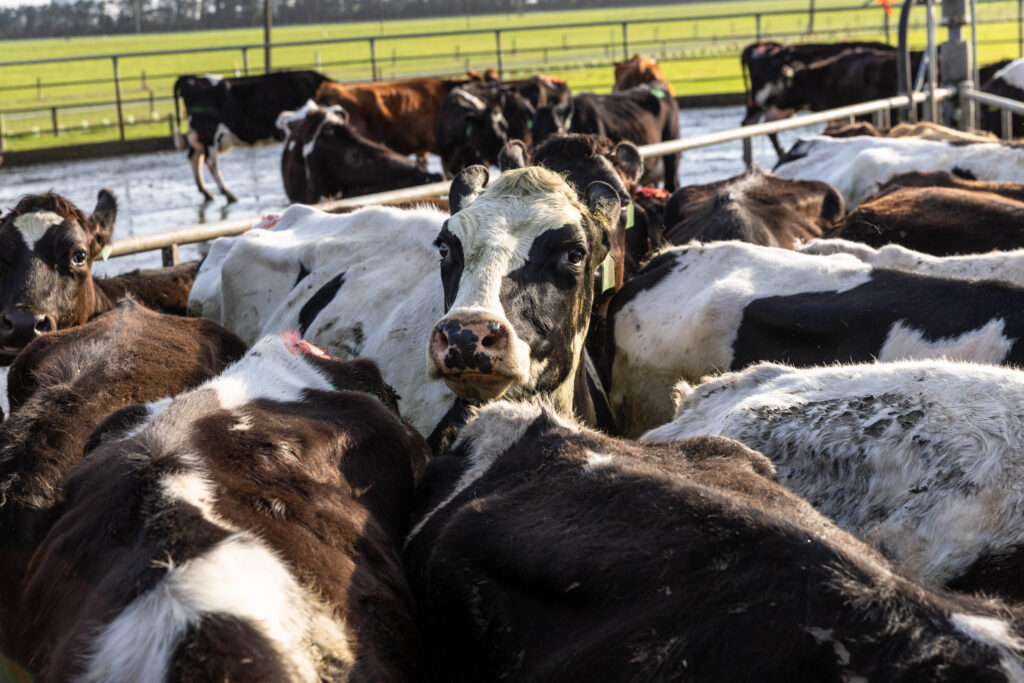
But before that bill arrived, the couple had used the little money they had left to put a deposit on a section in Wanaka and they determinedly held onto that, despite pressure from their bankers and accountant to sell the land after the tax bill arrived.
It took every last dollar they had, along with some support from Becs’ parents, but eventually they were able to build a house on the section, and it now provides an excellent rental return.
“That was the perfect story of great timing, we got it just before everything went up. The builders came through on price and on time,” Becs says.
After a season at Rangitata, the Dondertmans realised that 800 cows – the fewest they’d ever milked – weren’t enough for them and they took a 1200-cow contract milking job with Farmright, at Coldstream, south of Hinds, Mid Canterbury.
“We’ve always been on big farms. We just enjoy that slightly larger scale with a bigger team and more people to work with.”
They stayed two years on the Farmright property but then the company signalled a move away from contract milkers in favour of managers. At about the same time a friend of Josh’s, Eugene Cronin, a supervisor for corporate farmers Dairy Holdings Ltd, persuaded him to consider a job with them.
“Eugene said, ‘What is your way of farming based around?’. My answer was, ‘It’s around low costs and low inputs’, and that’s really what Dairy Holdings are.”
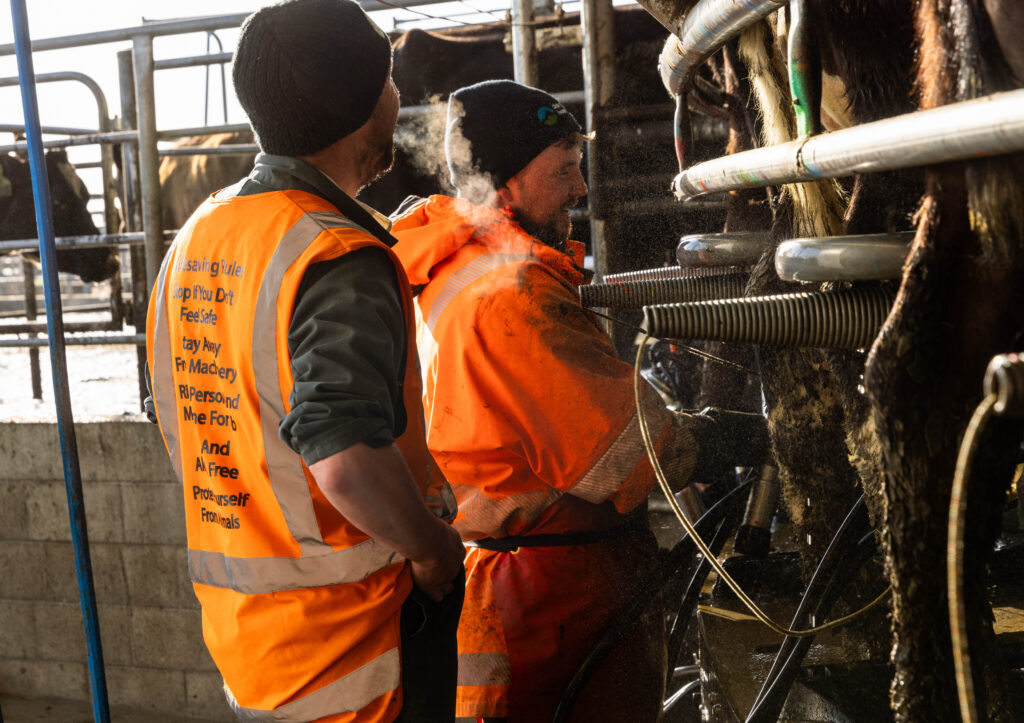
It turned out Dairy Holdings’ way of farming was aligned to the way Josh had learnt to farm. The Dondertmans took a job on one of DHL’s smaller farms and this season took over at Terrace Farm, a 1100-cow, 280ha property.
“It’s got a rotary, pivots and reliable water so it’s the perfect size, great location, the kids are at Dunsandel school, it’s not far from Christchurch, we’re building our equity, it’s good,” she says.
Four years after the disappointment of losing their investment in an equity partnership, the Dondertmans feel they’re back on track again.
“I could never envision just leaving what we were doing in Culverden but we’re going to end up in a far better spot,” says Josh.
“We would probably have stayed in Craigmore forever because we were in that real comfortable space.
“We’ll go a lot further. I don’t think we’ll get to that farm ownership goal because we have moved the goal posts, and it’s not a driver for us any more. Nothing is ever off the table and we are always open to opportunities but it’s not a focus.”
One of the attractions of working for Dairy Holdings – which owns 60 farms – in addition to the low-cost, all-grass management model, is the opportunity for contractors and sharemilkers to build equity by taking ownership of the extra heifer calves born each year.
Becs and Josh now own 220 of their own cows.
The system is kept simple on DHL farms and that includes the mating policy.
“We only get one type of straw, a Kiwi-cross high fertility bull, and that’s it, 1.2 straws per cow. Once the straws are gone, you’re finished,” Josh says.
With DHL’s high fertility herd, the breeding system is working, he says, with a group average six-week-in-calf rate of 76% and this year they were halfway through calving by August 10.
“You go real hard and real quick early, so it is quite nice.”
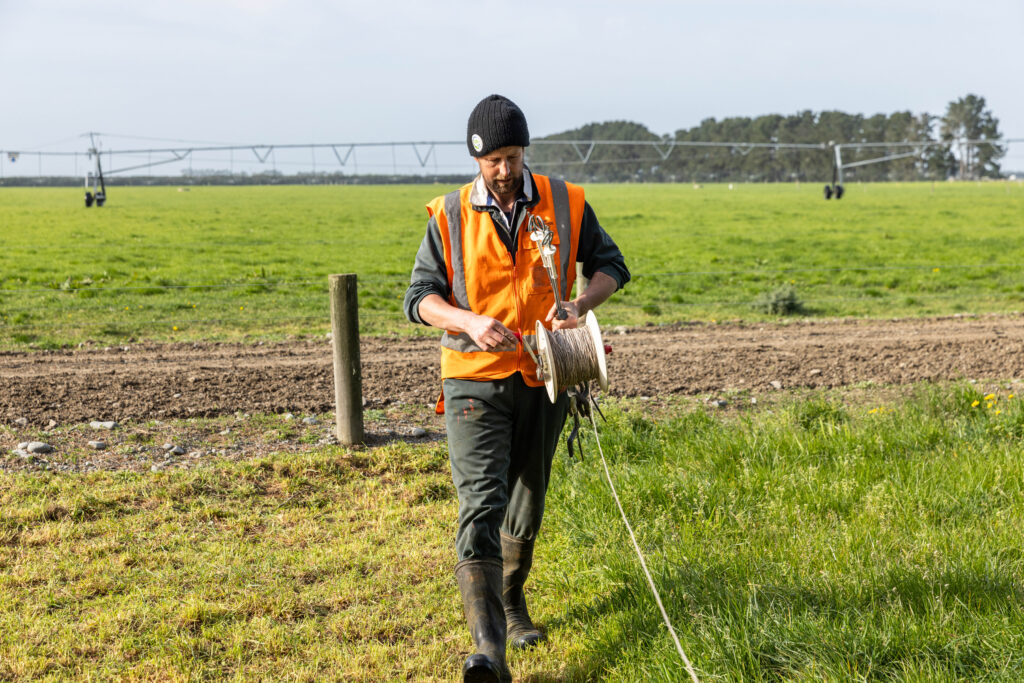
Dairy Holdings puts a big emphasis on health and safety, which, like the farm management system, aligns with the Dondertmans’ thinking.
“We truly want our farm to be safe and we want our people to enjoy their job, but we want to create a farming practice that our children can get involved in so it’s the balance between getting the job done and being safe, focusing on the real critical things,” says Becs.
She saw entering the Primary Industries Good Employer Award as an opportunity to get a positive story out about dairy farming employers.
“I had a look at it online and said to Josh, ‘Should we enter?’ It was about, ‘There are great employers in the dairy industry and why is that not publicised?’ So part of it was about saying, ‘Hey, I don’t think we’re the best but we do some cool things and hopefully that can help with some of that culture change’.”
Becs also works off farm as People and Wellbeing Lead for another dairy farming business, Southern Pastures Ltd, which gave her extra motivation to enter.
While she and Josh didn’t win the supreme prize – that went to New Plymouth business Tree Machine Services – they were joint winners of the small business Safe and Healthy Work Environment Award.
The key, Bec says, is not “to do health and safety” and try to drum rules into staff; it is just making it part of the everyday, part of the team culture.
“I think it’s just setting the standard and accepting nothing less. And if we do it safely and well it’s also going to be more efficient and more productive. We try to lead by example on the farm and don’t want our team to think any differently. It’s just part of working on this farm, this is what we do.”
Dairy Holdings also has what it calls “lifesaving rules”, which focus on the STKY (Stuff That Kills You) to keep the focus on how staff who do that safely can keep safe on farms.
Part of effective health and safety, the Dondertmans say, is open and effective communication, talking about upcoming jobs, what could go wrong and what actions should be undertaken if that happens.
“The other day we talked about weighing and drenching calves and what could go wrong. You’ve got to run them down the road to get them to the yards and there were conversations about how we do that safely, handle the stock without getting kicked and making sure we’ve got the correct footwear on so we’re not getting stood on,” Josh says.
But on the day the usually quiet road was busier than usual and a large truck shared it with the calves.
“We had talked about how we could effectively make traffic stop and cross the road and he was very good and he stopped for us. We had a plan and had talked about it so everyone knew what to do.”
“It’s about planning rather than reacting,” says Becs.
“If we can plan those jobs and think about the things that will keep us safe, we can actually stop some incidents happening rather than an incident happening and reviewing it. Being in front of it rather than behind.”
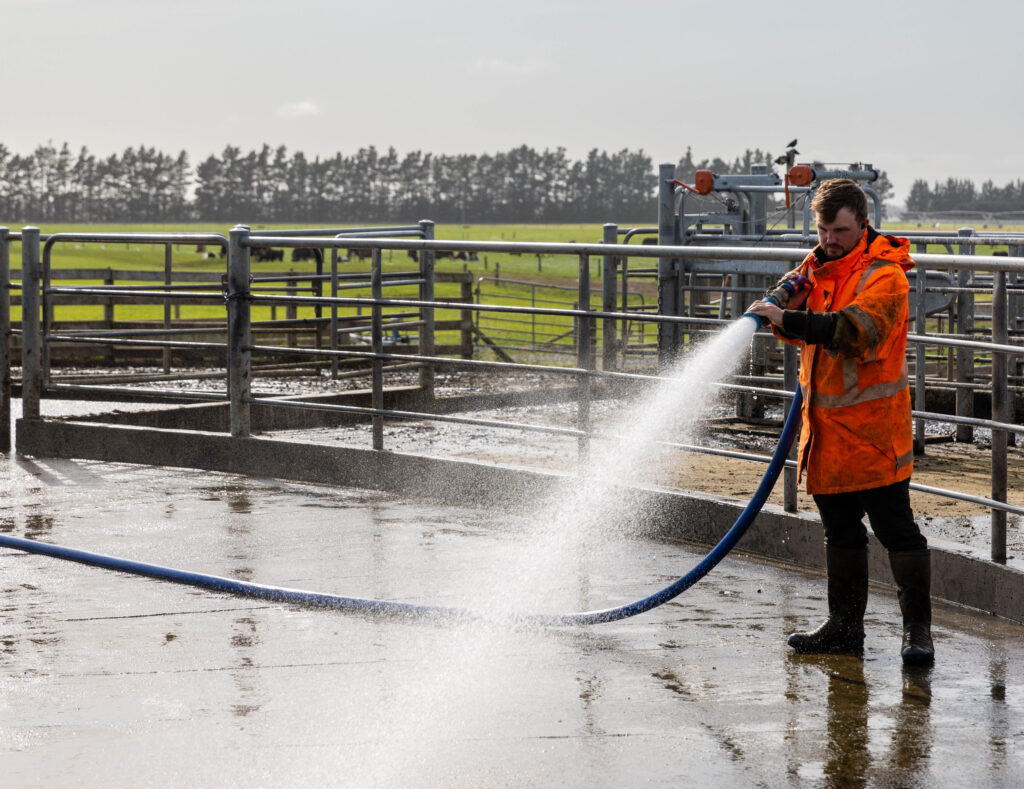
They also believe in not trying to jam too much into a day, making sure the essential jobs get done but, if need be, non-essential tasks are pushed into the next day.
“We don’t have to be here from morning till night every day but if we can get the essentials done, that will mean we’re not doing as many hours at work so they come back a lot fresher, ready for the next morning,” Josh says.
“We’re pretty big sticklers in making everyone take their time off and monitoring hours.” Becs adds.
“I guess the wellbeing of everyone is the most important thing.”
While safe behaviours, like wearing helmets on motorbikes or wearing appropriate safety gear, are now pretty much ingrained in their staff, Josh admits that even he has had to relearn some of his attitudes.
“I’ve had to go, ‘I can’t really go out there in my jandals because it’s not the right thing to do’.”
The Dondertmans have endured some difficult times in their farming career, losing the equity they worked so hard to build, but they’re confident they’re now back on track, happy that the opportunities offered by Dairy Holdings will be good for their family.
“We are really aligned to the way Dairy Holdings operate the business and that’s probably the biggest lesson we’ve learnt in our career — be true to your own values and if you’re going into business with someone else, make sure you’re completely aligned to the way they operate their business and their values too,” says Becs.
“Their system of low input, low cost is Josh’s bread and butter, that’s what he knows from growing up and from working in his early years so it’s a system that we believe in and they believe in and they’re really focused on achieving. If they’re succeeding, so are we.”
